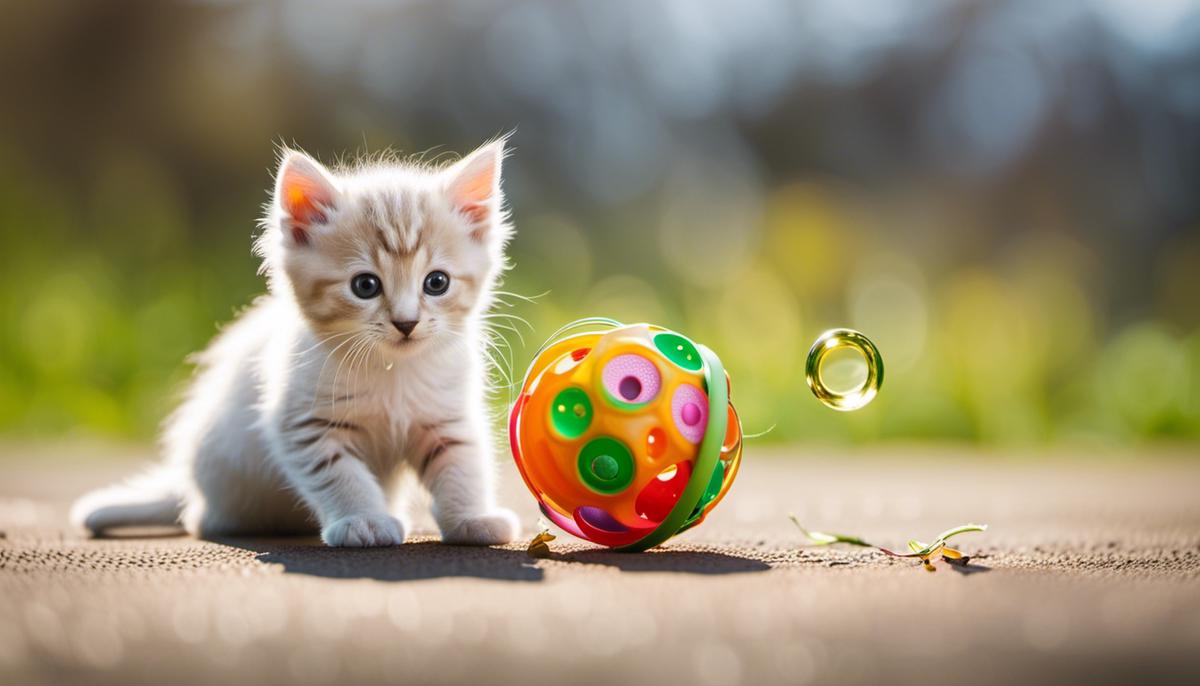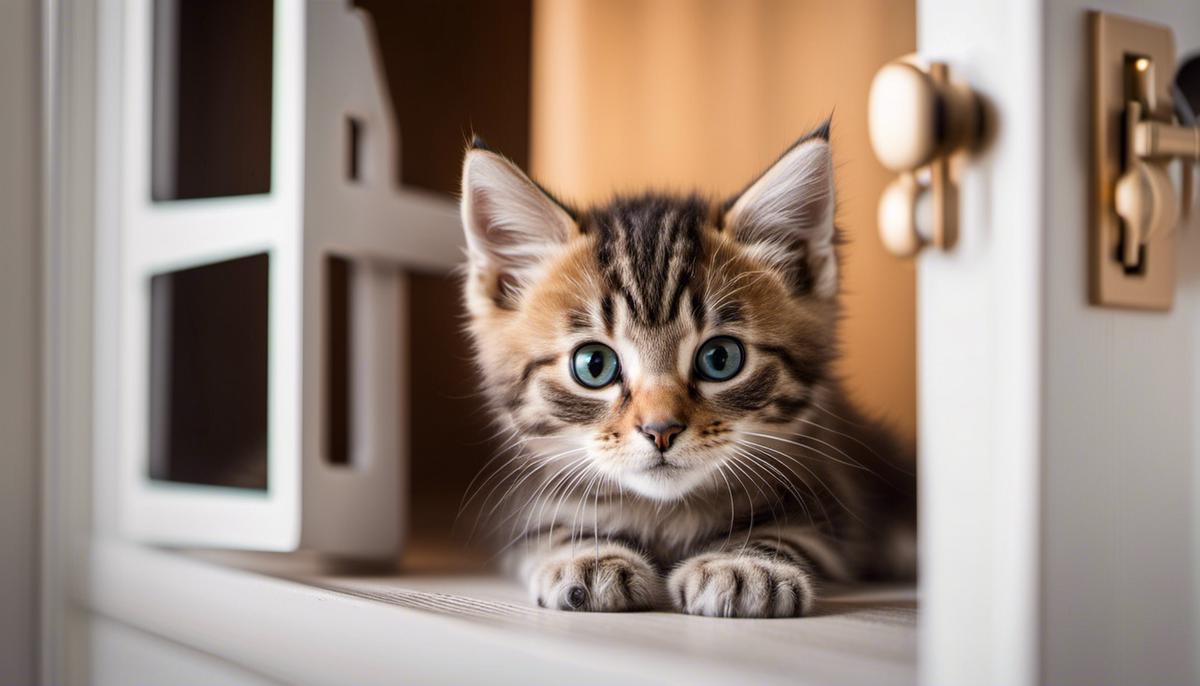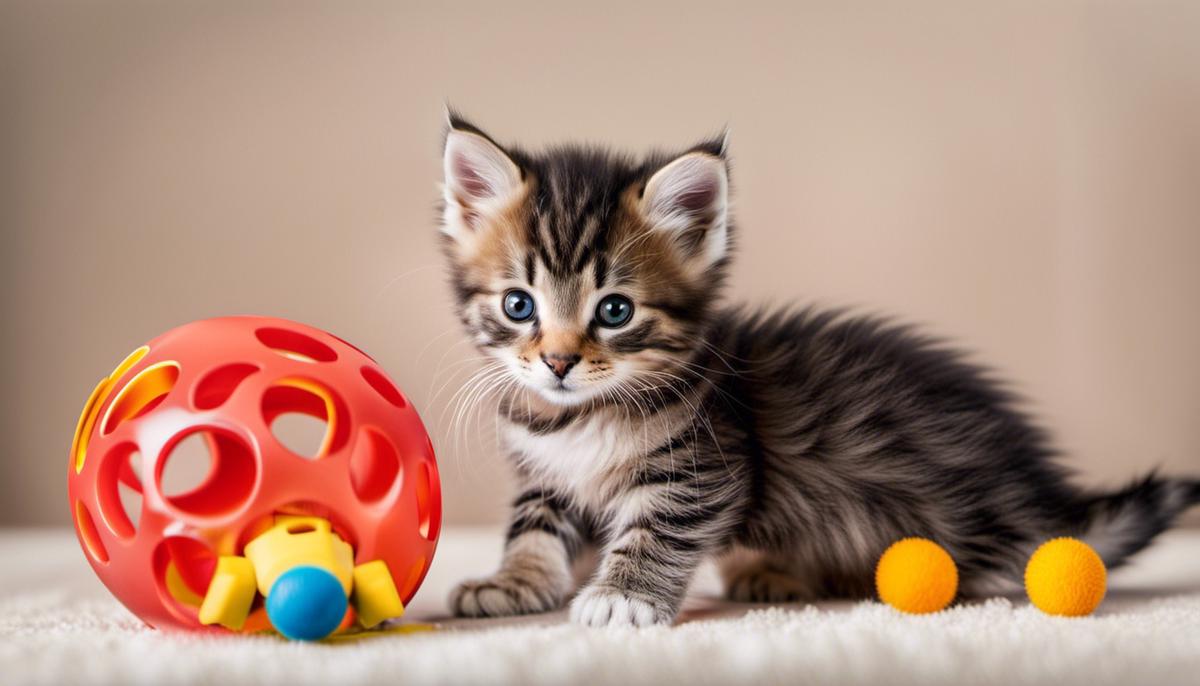Welcome to the delightful world of being a kitten parent! Taking the leap of adding a new fluffy member to your family is an exciting journey that brings joy, cute antics, playfulness, and unconditional love. However, it also comes with the serious responsibility of ensuring your new kitten remains healthy, happy, and comfortable in their new environment. From their physiological to emotional needs, there are aspects you need to know to make your new pet feel right at home. This includes an understanding of their diet needs, sleep patterns, playtime requirements, and many more. Beyond that, we’ll also delve into setting up a kitten-friendly environment, ensuring that even the smallest details from the litter box to their sleeping area have been well taken into consideration. Finally, we’ll tackle necessary health care and vet requirements your kitten will need.
Understanding Kitten Needs
Understanding Kitten Needs: Physiological and Emotional Requirements
Kittens have specific physiological and emotional needs unique to their life stage. They require a balanced diet rich in proteins, fats, and certain minerals. Kitten-specific formulas available at pet stores are often an excellent choice as they are specially designed to meet their nutritional needs. Avoid feeding your kitten cow’s milk, as it can lead to digestive issues. Human food should also be avoided because some food items might contain substances harmful or even fatal to kittens, such as onions, garlic, chocolate, caffeine, and alcohol.
High quality wet cat food is often preferred for kittens due to its high moisture content, which can help prevent dehydration. Additionally, it’s more protein-dense than dry foods. However, you might want to introduce dry food to your kitten’s diet gradually, because dry food can contribute to dental health.
Recognizing Their Sleep Patterns
Newborn kittens sleep an estimated 90% of the day, and six-month-old kittens approximately 60%. A kitten aged around 3-4 months can sleep around 16-20 hours per day- their rapid growth requires a lot of rest. Your kitten’s routine will gradually adjust to yours. However, they are naturally more nocturnal and may have playful streaks during the night.
Play Time and Interaction
Playing is essential for a kitten’s development. It provides mental stimulation, physical exercise, skill development, and it’s a way to bond with you. Allocating specific playtimes throughout the day, heeding to their exploratory and predatory instincts, can keep your kitten happy and healthy. Interactive toys, small balls, feather wands, and laser pointers are all favorites among kittens. Avoid using your fingers as playthings to prevent fostering aggressive behavior.
Understanding and Addressing Their Need for Social Interaction
Kittens are social animals and require interaction and company. Left alone, they can become lonely and anxious. Regular petting, talking, and play sessions are important for their emotional well-being and to promote human-animal bonding. If you’re often away, consider adopting a second kitten as a companion. Always introduce new pets slowly and under supervision, as kittens can be territorial.
Understanding Kitten Behavior
Finally, understanding kitten behavior is paramount in establishing a pleasurable pet-owner relationship. A happy kitten will have a relaxed body posture, smooth fur, and will be playful and active. Hissing, growling, or fur standing on end are often signs of stress or fear. If any negative behaviors persist, seek advice from a vet or a pet behavioral therapist.

Setting-up a Kitten-Friendly Environment
Kitten-Proofing Your Home
A first step in preparing for a new kitten is to ensure your home is a safe environment. Examine every room with an eye for potential hazards. This includes things like loose wires, houseplants that could potentially be toxic to cats, and small objects or pieces of furniture that may pose a choking risk. Items such as blinds and curtain cords should be kept out of reach, as they can cause strangulation. Securing loose rugs and runners can prevent your kitten from slipping or tripping.
Picking the Perfect Litter Box
Choosing the right litter box is crucial for the comfort and house-training of your kitten. Opt for a box that is low enough for your kitten to jump into, but a size that can accommodate your little one as they grow bigger. Location is also key – it should be easily accessible, yet offer some privacy. Be sure to maintain cleanliness by scooping daily and fully changing out the litter regularly.
Choosing a Sleep Area
A small, soft bed in a quiet corner of a room can provide a cosy sleeping area for your kitten. Your kitten might prefer a bed with raised edges to snuggle against, which can also provide a sense of safety. The sleep area should be in a low-traffic zone of your home to avoid disturbances.
Toys for Stimulation
Toys are an essential part of a kitten’s environment, as they offer stimulation and exercise. There are a variety of kitten-friendly toys you can consider, including balls, catnip toys, laser pointers, and interactive toys. However, avoid toys with small, easily swallowed parts and always supervise playtime with string or yarn toys.
Setting up Feeding Station
Choosing a quiet spot in your home for a feeding station is essential to avoid distractions. Ensure the area is easily cleanable, as kittens can be messy eaters. Offering both wet and dry foods in small dishes will provide complete nutrition as per AAFCO guidelines. Fresh water in shallow dish should be available at all times, refilled daily. It is recommended to separate feeding and litter areas to prevent any association between the two, which could discourage the kitten from eating.

Kitten Health and Vet Care
Understanding Common Kitten Health Issues
Familiarize yourself with common kitten health issues such as ear mites, fleas, upper respiratory infections, and feline distemper. Understanding these common illnesses and their symptoms can enable you to identify any potential health issues in your kitten early on. Ear mites often result in excessive scratching of the ears, head shaking, and a dark discharge from the ears. Fleas can cause similar excessive scratching, noticeable discomfort, and hair loss, while symptoms of respiratory infections may include sneezing, coughing, fever, and nasal discharge.
Preventative Care for Kittens
Preventive care is essential to ensure your kitten’s overall health. This involves regular feeding of a nutritionally balanced diet, a constant supply of fresh water, routine exercise, and creating a safe, clean living environment. It’s also important to keep your kitten indoors until they’re fully vaccinated to prevent exposure to diseases and parasites.
Initial Vaccinations for Kittens
Providing your kitten with their initial vaccinations is vital for their health. Generally, kittens start getting vaccinations when they’re 6 to 8 weeks old and continue to get them every 2 to 4 weeks until they’re about 16 weeks old. Some core cat vaccinations include ones for Panleukopenia (feline distemper), Feline Herpesvirus-1, and Rabies. Your vet will be able to provide you with a detailed schedule for these essential vaccinations.
Spay/Neuter Considerations
Getting your kitten spayed (for females) or neutered (for males) is generally recommended to prevent overpopulation, prevent certain kinds of cancer, and reduce certain behavioral issues. Usually, it’s most effective to have this procedure done before the kitten reaches sexual maturity, often around five to six months of age, but it can vary. During your initial vet visits, it’s crucial to discuss the best time to have this procedure performed.
Identifying a Vet Clinic and Vet Selection
Know where your nearest vet clinic is and have their contact number readily available. When choosing a vet for your kitten, consider the location, hours of operation, range of services, and the vet’s reputation. It can be helpful to ask friends or family for vet recommendations, or to look up vet reviews online.
The Importance of Regular Vet Check-Ups
Regular vet check-ups are necessary to track your kitten’s health over time. These appointments allow the vet to monitor growth progress, provide necessary vaccinations, detect any health issues, and provide recommendations for optimal kitten care. Typically, you should arrange for a check-up every 6 to 12 months, depending on your vet’s advice.

To ensure your kitten thrives and grows into a healthy and happy cat, be sure to educate yourself on the necessary requirements and adjustments needed. From understanding their basic needs to creating a comfortable and safe environment, every detail counts. Regular vet visits and vaccinations play a crucial role in maintaining your kitten’s health, helping to prevent several common cat diseases. By embracing this knowledge, you give your kitten the best chance at a long, happy life. Remember, being a pet parent is not only about the joy and love you receive but more importantly, about the love and care you give. So, here’s to a new and rewarding journey of kitten parenting!
Discover Writio: The AI that crafts remarkable content for your website. This article was written by Writio.



Recent Comments